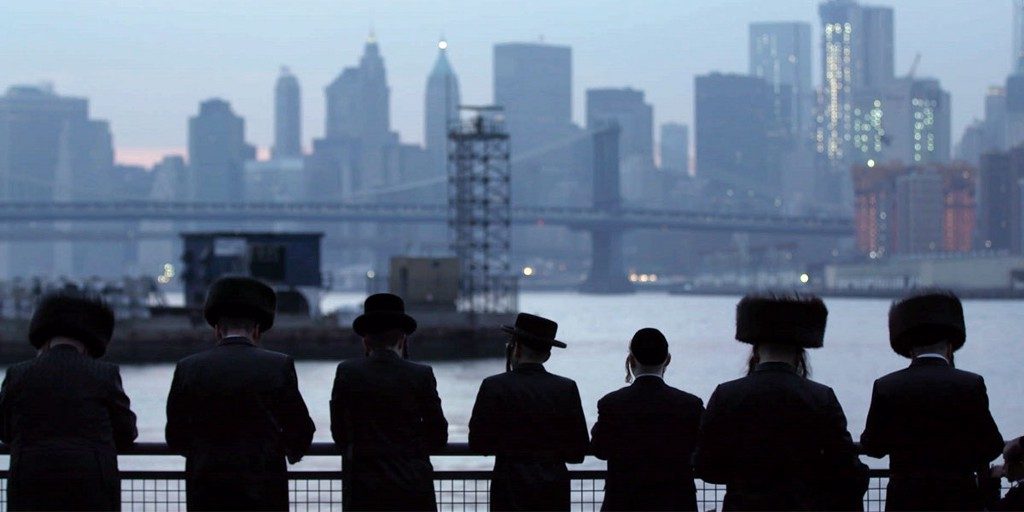Rachel Grady is a filmmaker and co-owns New York’s Loki Films with Heidi Ewing. She and Ewing have have directed six feature-length films, including “Jesus Camp,” “The Boys of Baraka,” “12th & Delaware,” “Detropia,” and “Norman Lear: Just Another Version of You.” The latter was recently nominated for an Emmy alongside PBS’ “American Masters.”
“One of Us” will premiere at the 2017 Toronto International Film Festival on September 10. The film is co-directed by Ewing.
W&H: Describe the film for us in your own words.
RG: “One of Us” is a cinéma vérité deep dive into the lives of three individuals who have chosen to leave or have been pushed out of the enormously insular world of Hasidic Judaism. The film offers unique and intimate access to the lives of all three as they deal not only with questions of their beliefs but also the consequences of leaving the only community they have ever known. Freedom will cost them. The question is, what’s the price?
W&H: What drew you to this story?
RG: First and foremost: curiosity. If you’re going to be living with a story for several years, it’s got to be something that’s meaty and has a lot of directions to move in. Also, I can say with confidence that New Yorkers are obsessed with the Hasidic community.
We then learned about Footsteps, a support group for people leaving the Hasidic community, and the idea of people starting from scratch in a secular society has inherent stakes. These people are essentially willing to give everything up in order to explore their own identities. There’s something so universal about that, something that surpassed even the idea of this being a religious community. Not fitting in at some point in one’s life is something a lot of people can identify with.
W&H: What do you want people to think about when they are leaving the theater?
RG: I think that the film is going to speak to a lot of people. Everyone’s had a time in their life when they felt like an outcast. I also hope that people will start thinking about the judicial system, because we have an example of it — in my opinion — going horribly wrong in the film and I’m hoping that is brought to light.
W&H: What was the biggest challenge in making the film?
RG: There were daily challenges. This is a community that at its very core doesn’t want the outside world to know anything about them. We were able to get some access through our subjects, but they are also on the outs with the Hasidic community. Therein lies an intrinsic conflict that we spent the better half of three years facing.
W&H: How did you get your film funded? Share some insights into how you got the film made.
RG: We initially received a generous grant from Artemis Rising and were able to get the ball rolling and experiment with what the film could and should be. Netflix saw some early material and came onboard with the full budget. They’ve been a wonderful creative partner.
W&H: What does it mean for you to have your film play at the Toronto International Film Festival?
RG: In 15 years as filmmakers we’ve never had a film at TIFF! We’re so thrilled to have our premiere here, and so excited to share with Canadians. We’ve screened other work at special events in Toronto over the years and the people of this city are wonderful and engaged. It’s an excellent way to start the public life of the film.
W&H: What’s the best and worst advice you’ve received?
RG: Best advice: Trust yourself.
Worst advice: Just “wing it” when giving a wedding toast. Don’t do that.
W&H: What advice do you have for other female directors?
RG: Don’t apologize. It’s something that to this day I have to remind myself of daily. It’s reflexive for women, and I’m over it.
W&H: Name your favorite woman-directed film and why.
RG: I have a great many I love. Right now it’s Patty Jenkins’ “Wonder Woman.” I started to cry when Wonder Woman charged across No Man’s Land into the hands of grave danger. It touched me deeply.
W&H: There have been significant conversations over the last couple of years about increasing the amount of opportunities for women directors yet the numbers have not increased. Are you optimistic about the possibilities for change? Share any thoughts you might have on this topic.
RG: Yes, I’m optimistic. See my above answer. Patty helmed a film that will make over a billion dollars. More opportunities mean more women gaining more confidence. Critical mass is inevitable. Infuriatingly slow — but inevitable.






